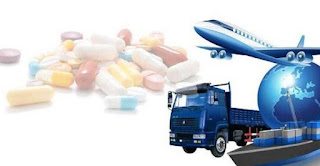Pharmaceuticals Logistics USA
Managing Pharmaceuticals Logistics USA involves a complex network of transportation, storage, and distribution activities to ensure the safe and timely delivery of medical supplies and medications. Here are some key aspects of pharmaceutical logistics in the USA:
Regulatory Compliance: The pharmaceutical industry in the USA is highly regulated, with strict requirements for the storage, handling, and transportation of medications. Logistics providers must adhere to regulations set forth by agencies such as the Food and Drug Administration (FDA) and the Drug Enforcement Administration (DEA) to maintain product integrity and compliance with safety standards.
Temperature Control: Many pharmaceutical products, particularly vaccines, biologics, and certain medications, require strict temperature control throughout the supply chain to maintain efficacy and safety. Logistics providers use specialized refrigeration and temperature-monitoring systems to ensure that products remain within the required temperature range during transit and storage.
Supply Chain Visibility: Real-time tracking and visibility are essential for monitoring the movement of pharmaceutical products and identifying potential issues or delays in the supply chain. Advanced tracking technologies, such as GPS tracking and RFID (Radio Frequency Identification) systems, enable logistics providers to track shipments and monitor conditions remotely.
Security Measures: Given the high value and sensitivity of pharmaceutical products, logistics providers implement robust security measures to prevent theft, tampering, and diversion. This may include secure facilities, surveillance systems, and strict access control protocols to safeguard pharmaceutical inventory.
Reverse Logistics: Effective management of reverse logistics is crucial for handling product returns, expired medications, and product recalls. Logistics providers must have processes in place to facilitate the safe and compliant return of pharmaceutical products, including proper disposal or destruction of expired or recalled items.
Emergency Preparedness: In the event of natural disasters, public health emergencies, or other disruptions to the supply chain, pharmaceutical logistics providers must have contingency plans in place to ensure the uninterrupted delivery of critical medical supplies. This may involve pre-positioning emergency stockpiles, coordinating with government agencies and healthcare providers, and implementing alternative transportation routes as needed.
Collaboration and Partnerships: Effective pharmaceutical logistics often requires collaboration among multiple stakeholders, including manufacturers, distributors, pharmacies, hospitals, and regulatory agencies. Logistics providers may form strategic partnerships with these stakeholders to streamline processes, improve efficiency, and enhance supply chain resilience.
By addressing these key aspects, pharmaceutical logistics providers in the USA can optimize their operations to meet the stringent requirements of the industry and ensure the safe and reliable delivery of vital medications and medical supplies.


.jpg)
.jpg)
Comments
Post a Comment